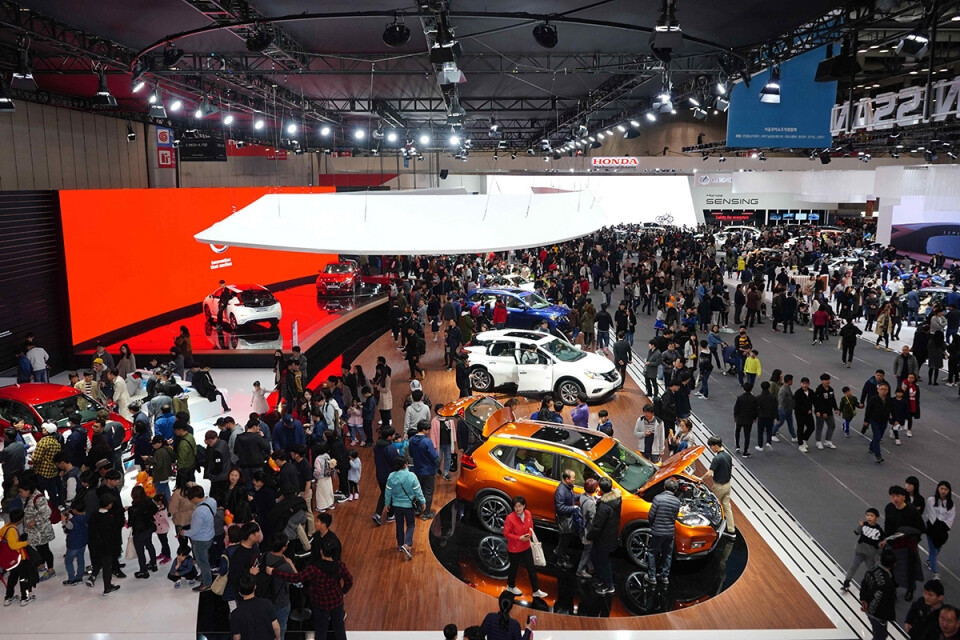
The Shanghai Auto Show (Auto Shanghai), recognized as one of the world's largest automotive exhibitions, grandly opened on April 23, 2025. Held across a sprawling 360,000 square meters at the National Exhibition and Convention Center (NECC) in Shanghai until May 2, this 21st edition of the motor show boasts the participation of nearly 1,000 companies from 26 countries and regions, marking its largest scale ever.
From traditional European brands like Volkswagen, Mercedes-Benz, BMW, Audi, and Volvo to Japanese automakers such as Toyota, Honda, and Nissan, alongside major Chinese automotive enterprises including SAIC Motor, Changan Automobile, BAIC Group, GAC Group, Geely, Dongfeng Motor, and BYD, the event is brimming with enthusiasm. According to the organizers, over 100 innovative new models, primarily focusing on sport utility vehicles (SUVs) and electric vehicles (EVs), are set to be unveiled.
Notably, the approximately 100,000 square meter Technology & Supply Chain Exhibition area showcases cutting-edge technologies from global component manufacturers such as Bosch, Hyundai Mobis, and Samsung Electronics, as well as CATL, the world's leading battery manufacturer from China. CATL is drawing significant attention with the debut of its new sodium-ion battery, which offers enhanced safety and efficiency compared to existing lithium iron phosphate (LFP) batteries, and a groundbreaking battery technology capable of providing 520 km of driving range with just a 5-minute charge. This development signals an intensifying competition in charging technology, following BYD's introduction last month of a rapid charging system enabling 470 km of range in 5 minutes. Dr. Gao Huan, CTO of CATL, further astounded the industry by announcing plans to present a dual-battery system technology at the motor show, boasting a maximum driving range of 1,500 km on a single charge.
Adding to the anticipation, Xiaomi Auto, making a bold entry into the EV market with its SU7, and EVs powered by Huawei's independently developed mobile operating system (OS), HarmonyOS, are making their inaugural appearances at the Shanghai Auto Show. Nio's new mass-market EV brands, Onvo and Firefly, are also among the highly anticipated first-time participants.
Held biennially, alternating with the Beijing Motor Show, the Shanghai Auto Show initially served as a crucial marketing platform for global automakers seeking to enter or expand their presence in the vast Chinese automotive market. However, in recent years, the remarkable growth of Chinese EV manufacturers, spearheaded by BYD, has shifted the event's focus towards domestic players. The Chinese automotive market is rapidly advancing beyond electrification towards "smartification," encompassing autonomous driving technologies. According to the China Association of Automobile Manufacturers, the production and sales of new energy vehicles in the first quarter of this year increased by 50.4% and 47.1% year-on-year, respectively, demonstrating continued robust growth.
Amidst this dynamic landscape, collaborations between global automotive brands and Chinese technology companies are increasingly prevalent. BMW's recent announcement of an artificial intelligence (AI) collaboration with Alibaba and ByteDance, the parent company of TikTok, exemplifies this growing trend.
While Hyundai Motor Group is not officially participating in this year's Shanghai Auto Show, its parts affiliate, Hyundai Mobis, has established a 300 square meter booth to showcase eight advanced products and two localized new technologies, including an augmented reality head-up display (AR-HUD) and a sound demo car. Notably, Hyundai's Chinese joint venture, Beijing Hyundai, held a special event in Shanghai for Chinese automotive media to unveil its new electric SUV, the ELEXIO, specifically developed for the Chinese market. Scheduled for an official launch in the second half of this year, the ELEXIO underscores Hyundai's commitment to the Chinese market. Mr. Oh Ik-kyun, Executive Vice President of Hyundai Motor Group China Ltd. and General Manager of Beijing Hyundai, emphasized that "China is a market that Hyundai cannot afford to give up" and pledged to "build a product lineup of six new energy vehicles optimized for the Chinese market by 2027, starting with the ELEXIO, to deliver experiences that meet the high expectations of Chinese consumers."
The Shanghai Auto Show 2025 transcends mere new vehicle debuts, serving as a vital platform for understanding the current state and future trajectory of the rapidly evolving global automotive industry. The innovative advancements within the Chinese automotive sector and the growing collaborations with global players are particularly noteworthy, hinting at significant shifts in the global automotive market landscape in the years to come.
[Copyright (c) Global Economic Times. All Rights Reserved.]






























